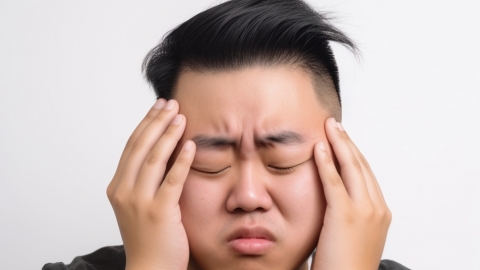Why do I feel dizzy in the morning after using a fan at night?
Generally, dizziness in the morning caused by sleeping with a fan may be due to factors such as cold wind invasion, dehydration, migraines, hypotension, or anemia. Symptomatic treatment, including lifestyle adjustments and medication, may be necessary. If symptoms persist, it is recommended to seek timely medical advice for appropriate treatment. Detailed explanations are as follows:

1. Cold Wind Invasion
Exposure to cold air for a prolonged period, especially affecting the head, may cause poor local blood circulation, leading to dizziness upon waking in the morning. Symptoms may include mild headache, nasal congestion, or sneezing. It is recommended to adjust the use of the fan to avoid direct blowing on the head. Setting the fan to oscillate mode can help reduce the direct airflow onto the body.
2. Dehydration
Continuous use of a fan throughout the night may cause excessive dryness in the indoor environment, potentially leading to body dehydration. This may slow blood circulation, affect cerebral blood supply, and cause dizziness, possibly accompanied by symptoms such as dry mouth, thirst, or dry skin. In such cases, adequate rest and increased water intake usually help alleviate dizziness.
3. Migraine
Stimulation by cold air may cause nerve discomfort and abnormal discharges, resulting in migraine headaches and dizziness. Symptoms may include headache, nausea, and vomiting. It is advisable to avoid exposure to cold winds, and medications such as ibuprofen tablets, indomethacin tablets, or nimodipine tablets may be used as directed by a physician to relieve discomfort.
4. Hypotension
When using a fan, the surface body temperature decreases, causing vasodilation and redistribution of blood flow to the skin, which may lead to a drop in blood pressure and insufficient cerebral blood supply, causing dizziness. Symptoms may also include fatigue and blurred vision. It is recommended to use medications such as midodrine tablets, flunarizine hydrochloride capsules, or propranolol hydrochloride tablets under medical supervision to regulate blood pressure.
5. Anemia
Anemia caused by long-term malnutrition or chronic blood loss results in a lower than normal number of red blood cells or hemoglobin levels, leading to insufficient oxygen supply to tissues. When using a fan, the drop in surface body temperature may worsen cerebral hypoxia, causing dizziness, possibly accompanied by pallor, palpitations, and other symptoms. It is recommended to use medications such as compound ferrous sulfate granules, iron dextran tablets, or intravenous iron sucrose under medical guidance to alleviate symptoms.
It is also recommended to perform simple head exercises in daily life, such as gently rotating the neck, nodding, or tilting the head back, to promote blood circulation in the head and improve dizziness symptoms.




